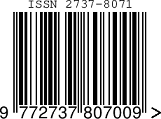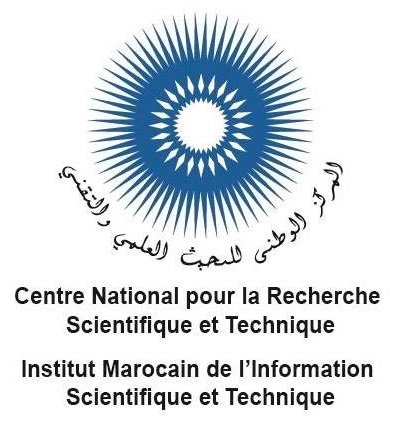Prediction of NAAC Grades for Affiliated Institute with the help of Statistical MultiCriteria Decision Analysis
Keywords:
WSM, ENTROPY, TOPSIS, VIKOR, ANOVA, Spearman’s Rank Correlation Coefficient, Group Decision Making, Additive Ranking, Multiplicative Ranking, Least Square Additive Regression methodAbstract
National Assessment and Accreditation Council is an impartial group of the University Grants Commission (UGC) of India, mounted in 1994. It has taken the duty of assessing and accrediting faculties and universities in India to encourage the instructional surroundings for the development of excellence in teaching, learning, and discovery in superior training. In those missions, NAAC acts a dynamic role. NAAC has been worried about reforming its ongoing Valuation and Certification policies, grounded on its arena, its shared statistics with different International Quality Assurance Agencies, and the best necessities within side the worlds converting the state of affairs over the progressive training development. In this paper, a new mathematical model is developed to explore the NAAC rating of a well-known Engineering College, considering nine more well-known Engineering Colleges. The system is characterized by NAAC Accreditation Criteria using Multi-Criteria Decision Making Methods, Statistics, and Group Decision Making
Downloads
References
Pin-Chang Chen, “A Fuzzy Multiple Criteria Decision Making Model in Employee Recruitment”, IJCSNS International Journal of Computer Science and Network Security, VOL.9 No.7, pp:113-117, July 2009.
P. Kousalya, V. Ravindranath, and K. Vizayakumar,“Student Absenteeism in Engineering Colleges: Evaluation of Alternatives Using AHP”, Journal of Applied Mathematics & Decision Sciences, Vol. 2006, Article ID 58232, Pages 1–26.
C.L. Hwang, K. Yoon, “Multiple Attribute Decision Making Methods and Applications”, Springer, Berlin Heidelberg, 1981.
S. Garcia, D. Molina, M. Lozano, and F. Herrera, “A studyon the use of nonparametric tests for analyzing theevolutionary algorithms’ behavior: A case study on theCEC’2005 special session on real parameter optimization,” J. Heuristics, vol. 15, no. 6, pp. 617–644, 2008.
K.S. Raju, and D. Nagesh Kumar, Multi-criterion Decision-Making in Irrigation Planning, Agricultural Systems, 62(2), pp. 117- 129 (1999).
G. Woodbury, Introduction to Statistics, Thomson Learning, USA (2002).
P.H. Liu and C.C. Wei A Group Decision-Making Methodfor Appraising the Performance of Organizations, International Journal of theComputer, the Internet and Management, 8 (2), pp. 39-49 (2000).
Sukarna Dey and Dipendra Nath Ghosh “Non-Teaching StaffPerformance Analysis Using Multi Criteria Group Decision Making Approach” International Journal ofEducation and Learning Vol.4, No.2 (2015), pp.35-50.
Pabitra Kumar Dey, Dipendra Nath Ghosh, Abhoy ChandMondal “Modified Group Decision Algorithmfor Performance Appraisal of Indian Premier League Cricketers”WSEAS TRANSACTIONS on INFORMATION SCIENCEand APPLICATIONS, Issue 10, Volume 10,October 2013.
Pabitra Kumar Dey, Dipendra Nath Ghosh, Abhoy Chand Mondal “IPL Team Performance Analysis: A Multi-CriteriaGroup Decision Approach in Fuzzy Environment”, I.J. Information Technology and Computer Science, 2015, 08, 8-15.
J. Ch. Pomerol and S. B. Romero, “Multicriterion Decision in Management: Principles and Practice”, Kluwer Academic,Netherlands, (2000).
NAAC, 2013, Manual for Universities, by NAAC,Bangalore, 23/01/2013. Available in www.naac.ac.in.
W. J. Connover, Practical Nonparametric Statistics, 3rd ed.New York: Wiley, 1999.
Opricovic S and Tzeng G-H, (2007), “Extended VIKOR Method in Comparison with Outranking Methods”, European Journal of Operations Research, Vol. 178, p 514-529.
www.naac.gov.in.
Downloads
Published
How to Cite
Issue
Section
License
Copyright (c) 2021 SUKARNA DEY MONDAL, Dipendra Nath Ghosh, Pabitra Kumar Dey

This work is licensed under a Creative Commons Attribution 4.0 International License.
Copyright on any article in the International Journal of Engineering and Applied Physics is retained by the author(s) under the Creative Commons license, which permits unrestricted use, distribution, and reproduction provided the original work is properly cited.
License agreement
Authors grant IJEAP a license to publish the article and identify IJEAP as the original publisher.
Authors also grant any third party the right to use, distribute and reproduce the article in any medium, provided the original work is properly cited.















